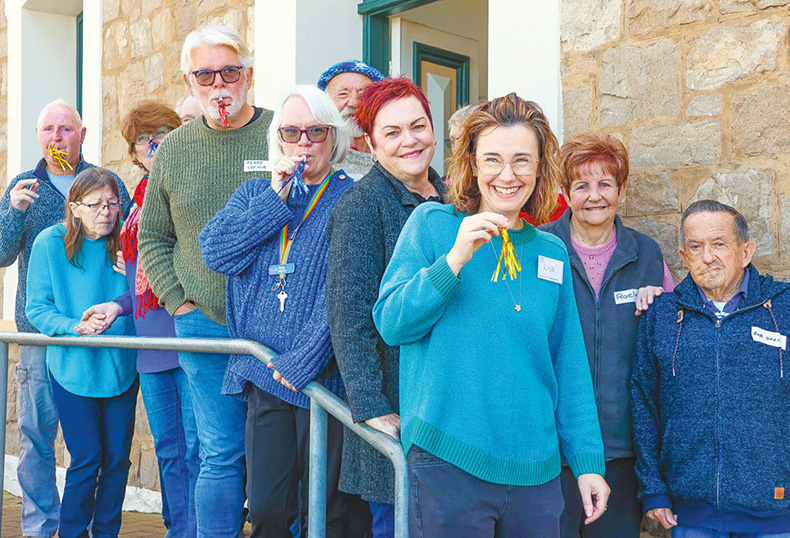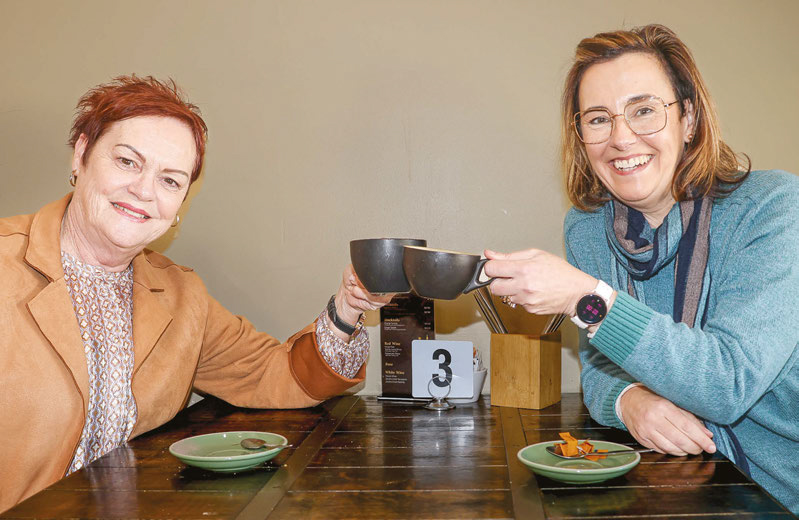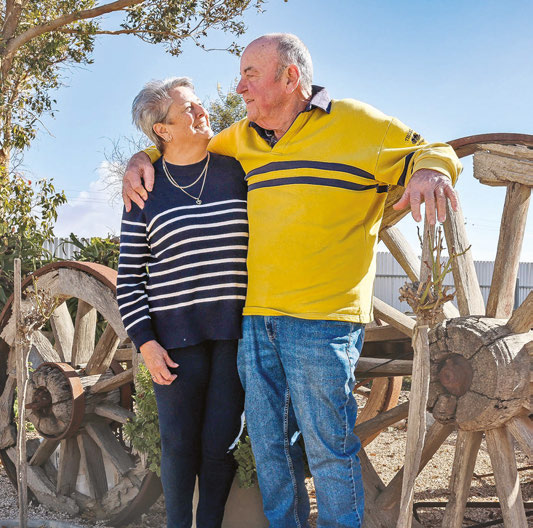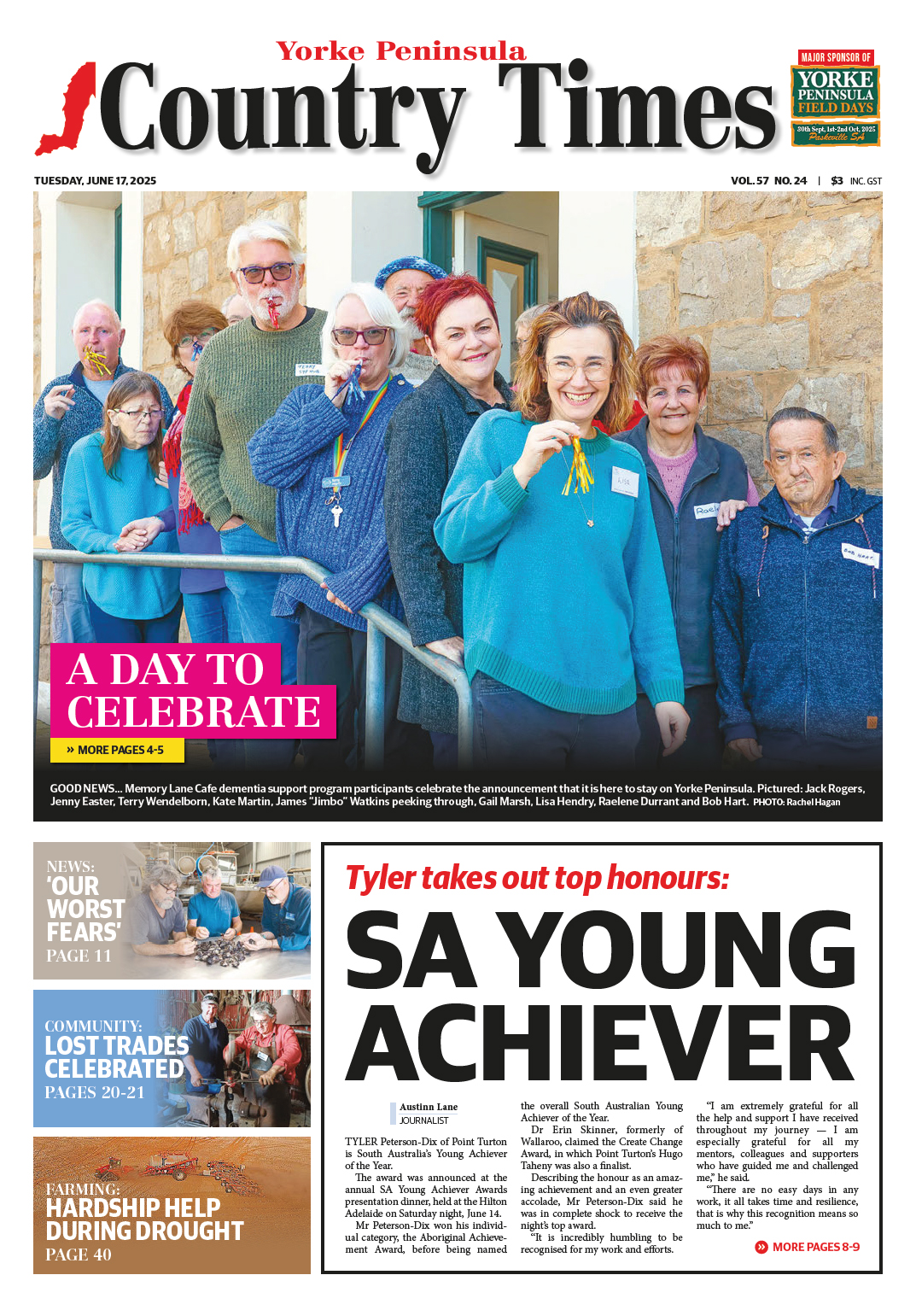Rachel Hagan, Yorke Peninsula Country Times
Yorke Peninsula dementia support program, Memory Lane Cafe, has been saved by several small community groups which have generously donated funding to keep not one, but two cafe programs running for another year.
In July 2024, dementia care advisor and enrolled nurse Lisa Hendry joined forces with the SYP Community Hub at Yorketown to host the first southern YP dementia friendly cafe.
Since then, the group has grown from just 10 people to about 60 regular attendees who visit the travelling cafe each month.
Ms Hendry said the group is as successful as it is because everyone attending “gets it”.
“The care partner can relax and know that their loved one is safe, respected and assisted to engage in the cafe space,” she said.
“There are some folks that come along because they don’t feel like they fit anywhere else.
“We are a welcoming group placing no demands or expectations on attendees — they can simply catch up with people they know, enjoy the guest speakers and it helps alleviate social isolation.”
Until recently there was concern among organisers because the project had not secured funding past next month.
“The SYP Community Shop, Stansbury Progress, Hardwicke Bay Progress and Port Moorowie Progress, along with a private donation, have all chipped in some funding,” Ms Hendry said.
And, last weekend, the Maitland Rotary and Apex clubs used their major fundraising event to contribute a further $15,000 to the program.
“Carers NT is another welcome partner in the cafe program providing an opportunity to develop the program for Ardrossan — meaning more opportunity for all to access a cafe throughout the year,” she said.
Because of this support, Ardrossan will be a permanent and more central home for one cafe, and the existing program will continue to switch between different SYP locations.
“St Columba’s Memorial School, Yorketown, very kindly offered us the use of their school buses in order to assist people to attend without worrying about how they would get there,” Ms Hendry said.
If the community had not stepped in, she said people living with dementia on YP would once again be isolated and struggling to access support.
“This would have devastating outcomes for our group,” she said.
“We know that humans are social animals, we thrive on connections and relationships.
“The importance of staying physically, mentally, socially and emotionally active in regard to brain health is well documented.
“It is incredibly detrimental to lose opportunities to exercise our brains, so we must continue to use our skills for as long as we can — keep those neural pathways strong and well connected.”
More than 300 people currently live with dementia on the peninsula, and that number is expected to grow by more than 50 per cent by 2054.
The diagnosis that changes everything
With their kids still in school, the Easter family was hit hard when their beloved wife and mother Jenny was diagnosed with dementia while still in her 50s.
Though finding a cause for Mrs Easter’s behaviour was somewhat of a relief for the family, it was only the first step into a complicated new world, which required rapid navigation.
Her husband David Easter said, after the initial diagnosis, there was no brochure or information provided to help them through the shock, just a verbal suggestion to call Dementia Australia.
“Who at that age has even heard of Dementia Australia?” Mr Easter said.
Dementia Australia linked the family to new resources, but advocating for Mrs Easter’s health care and general wellbeing was something he still had to do.
Mr Easter said he believed most people meant well, but he had to take control of many situations to make sure Mrs Easter got the care she deserved in an overloaded healthcare system.
“Dementia has taken over everything, it changes everything, it is an insidious thief that only has one endpoint,” he said.
Despite this, Mr Easter said the golden moments with his wife were still there, and humour still played a big part in their lives.
“We were going to redecorate, but that got cut short because you can’t afford to be on a ladder if someone is going to move it,” he said, while trying to contain his laughter.
“A couple of years ago I got up on a ladder, but Jen saw the ladder and put it away.” Without a phone or any close neighbours nearby, Mr Easter said he just sat on his roof and laughed.
“That’s not to say I don’t get upset — with dementia you are grieving all the time because there’s always little losses and not one big grieving moment,” he said.
Today, the Easters are regular attendees at both the SYP and Gawler Memory Lane Cafes, which have been safe havens that provide entertainment, education and human connection from people who understand their struggles.
Mrs Easter is now at the stage where she does not recognise her immediate family, but she still loves to listen to music and be around her community.
“There is a lot of value because we are out meeting people,” Mr Easter said.
“It would be very easy to just stay home, but that would really be such a sad thing.”
Breaking the stigma
About a year ago, Carol Reid made the heartbreaking discovery that she had unwillingly followed in her mother’s and aunts’ footsteps, after she was diagnosed with dementia.
She was first alerted to a potential problem by her girlfriends, who told her she was forgetting a lot of things and repeating the same story over and over.
Her husband Alan took her to the doctor, and Mrs Reid was given a few tests that revealed she was unable to draw a copy of certain shapes given to her, or to draw the time with hands on a clock.
Despite this, she could still easily recite the alphabet backwards.
“But I just knew I couldn’t finish it, I was so frustrated, and the more I tired the worse it was,” she said.
“It’s just really, really frustrating and I get so cross with myself.”
Early in the diagnosis, Mrs Reid tried pharmaceutical treatments which have the potential to slow the disease in some people.
However, they did not work and the symptoms from the drugs, such as hallucinations and nightmares, became too much for her to bear.
“My outlook on it is, when I wake up in the morning and I don’t know who the man next to me is, I know he will take me where I’ve got to go,” she said, while fighting back tears.
“But I won’t know because I’ll be in my own little world, and I won’t know anything different.
“Al… I don’t know what I would do without him.”
One of the places Mrs Reid has found happiness, outside the garden she has created with her husband Alan, is a ladies’ craft group in Stansbury.
“I absolutely love it, and I love the girls because we get along so well,” she said.
Despite her loving friendships, Mrs Reid confessed she was still quite concerned about what people will think of her, and still felt a bit of a stigma around dementia in the wider community.
“But it’s not a stigma, it’s just a disease and it’s not your fault,” she said.
“Sometimes I don’t want everyone to know because they look at you quite differently.
“They look at you like that’s not the Carol I know, and I want to be that person still.”
Though because of the stigma Mrs Reid initially had her reservations about attending the Memory Lane Cafe, she now believes it is one of the best places she could be — after craft anyway.
“The guest speakers are so good, and they say the things that you would never think about, but they hit home and explain how you are feeling,” she said.
“The big thing they say is ‘don’t shut yourself away from people because it’s not good for you’.
“I’m a people’s person so I love talking and having a laugh — that will never stop.”
Mrs Reid has an optimistic outlook on her diagnosis, but she and her husband agree a lot more needs to be done for people with dementia on Yorke Peninsula.
The problems the couple have had around trying to get railing put in key areas in their house have been enough to make them give up and find their own solution.
“That’s the big disadvantage of Yorke Peninsula,” Mr Reid said.
“When we came here, we were young and we thought we’d be alright here, but by the time you get to 70, you start to have a few ailments.”
This article appeared in Yorke Peninsula Country Times, 17 June 2025.




